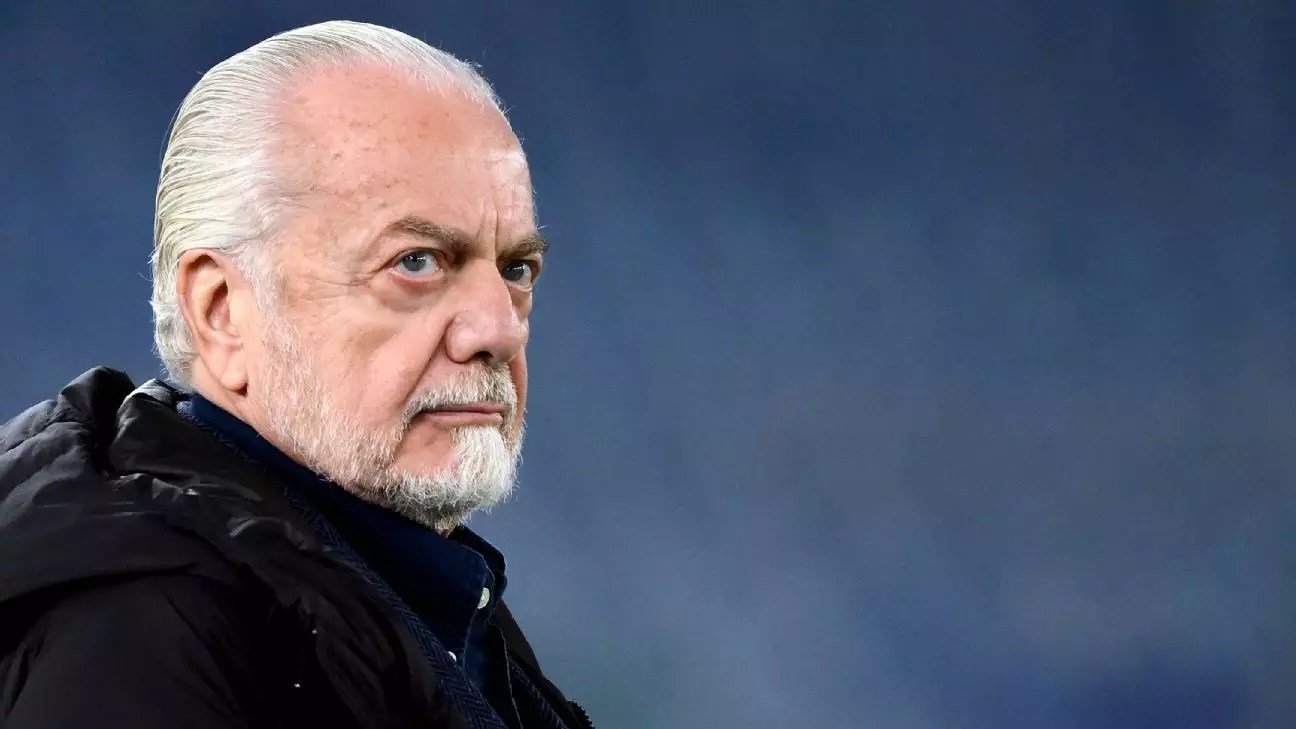Napoli’s downfall can be traced back to a single ill-advised certified email that set off a chain of events leading to the destruction of the club in less than a year. Club president Aurelio De Laurentiis made a decision to unilaterally extend coach Luciano Spalletti’s contract with no prior discussion, assuming it would serve as a starting point for negotiations. However, the move backfired as Spalletti felt offended by the impersonal and business-like approach. This led to Spalletti resigning from his position, leaving the club in a state of uncertainty.
Following Spalletti’s resignation, De Laurentiis scrambled to find a replacement and appointed French coach Rudi Garcia. Despite high hopes and minimal changes in the squad, Garcia failed to make an impact and was eventually fired after just twelve games into the season. His clash with some players and De Laurentiis revealed the lack of harmony within the club, leading to further instability and poor results on the field.
De Laurentiis’ decision to appoint Walter Mazzarri as the next coach did not improve Napoli’s situation. Mazzarri’s previous successes with the club seemed outdated as he struggled to adapt to the current squad’s playing style and formation. The team’s performance deteriorated under his tenure, culminating in his dismissal when Napoli found themselves in 10th place in the league, far from their previous standards.
In addition to the managerial issues, Napoli faced challenges with key players such as Piotr Zielinski. The decision to leave Zielinski out of the Champions League squad raised questions about personal agendas and conflicts within the club. Despite financial investments in new players during the January transfer window, the team failed to see significant improvements on the field. This resulted in a series of poor performances and disappointing results, highlighting the lack of cohesion and direction in the club.
The appointment of Francesco Calzona as an interim coach further reflected Napoli’s desperation and lack of strategic planning. Calzona’s limited experience as a head coach in professional club football raised doubts about his ability to steer the team in the right direction. Napoli’s recent struggles have tarnished their reputation as a model club that once balanced financial stability with on-field success. De Laurentiis’ once savvy approach to running the club has come into question, signaling a period of uncertainty and turmoil for Napoli.
Napoli’s downfall serves as a cautionary tale for other clubs on the importance of effective communication, strategic decision-making, and maintaining a cohesive team structure. The series of missteps and internal conflicts have led to a significant decline in performance and reputation for a once-prominent club in Serie A. Moving forward, Napoli will need to address the underlying issues and rebuild a strong foundation to restore their former glory in Italian football.


Leave a Reply